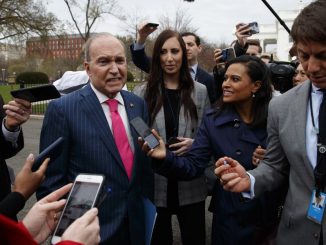
Just minutes before 2 a.m. on Saturday morning, the Senate passed $1.4 trillion tax reform with a vote of 51-49. The vote followed nearly strict partisan lines, with no Democrat voting in favor of the plan. The only Republican vote against tax relief was outgoing Sen. Bob Corker of Tennessee, who has publicly feuded with President Trump in recent months.
The tax reform bill marks the first major overhaul of the American tax code in three decades. Trump campaigned on lowering the U.S. corporate tax rate, currently the highest in the industrialized world, from 35% at the federal level to 20%. The bill eliminates deductions for state and local income and sales taxes but, at the insistence of Sen. Susan Collins, retains deductions of up to $10,000 in local property taxes.
The Senate version retains the home mortgage interest deduction level at the interest paid on the first $1 million of the loan, while the House bill lowers the limit to $500,000. The Senate bill also repeals the Obamacare individual mandate forcing all citizens to purchase health insurance or pay a hefty tax penalty, though the House version leaves the mandate in place. Both bills eliminate the $4,050 personal tax exemption.
If the House and Senate can iron out the differences before Dec. 31, as Trump and congressional Republicans have insisted is possible, the new law will go into effect on Jan. 1. While most analysts considered tax reform a pipe dream, expected holdouts such as Sen. John McCain and other other ultimate “yes” votes have given an early Christmas present to taxpayers and Trump’s legislative agenda.

